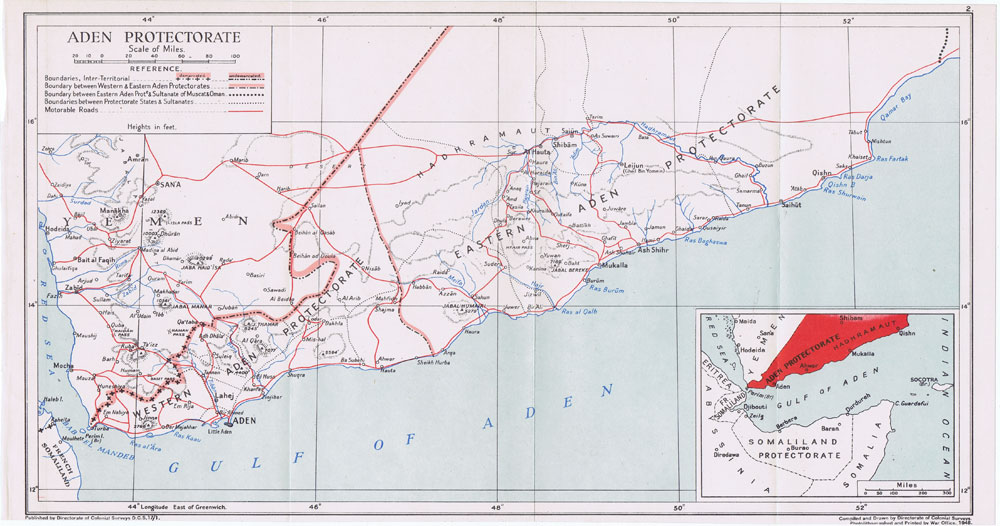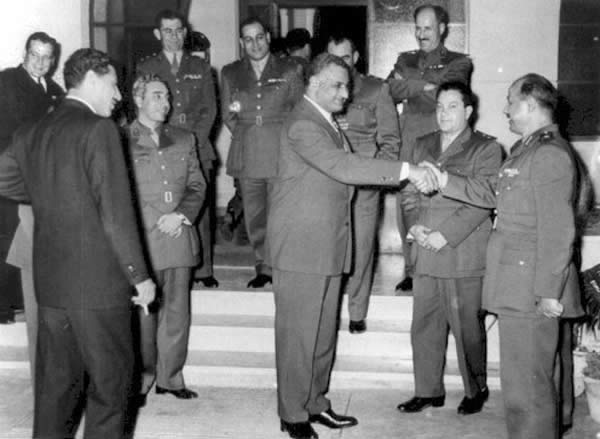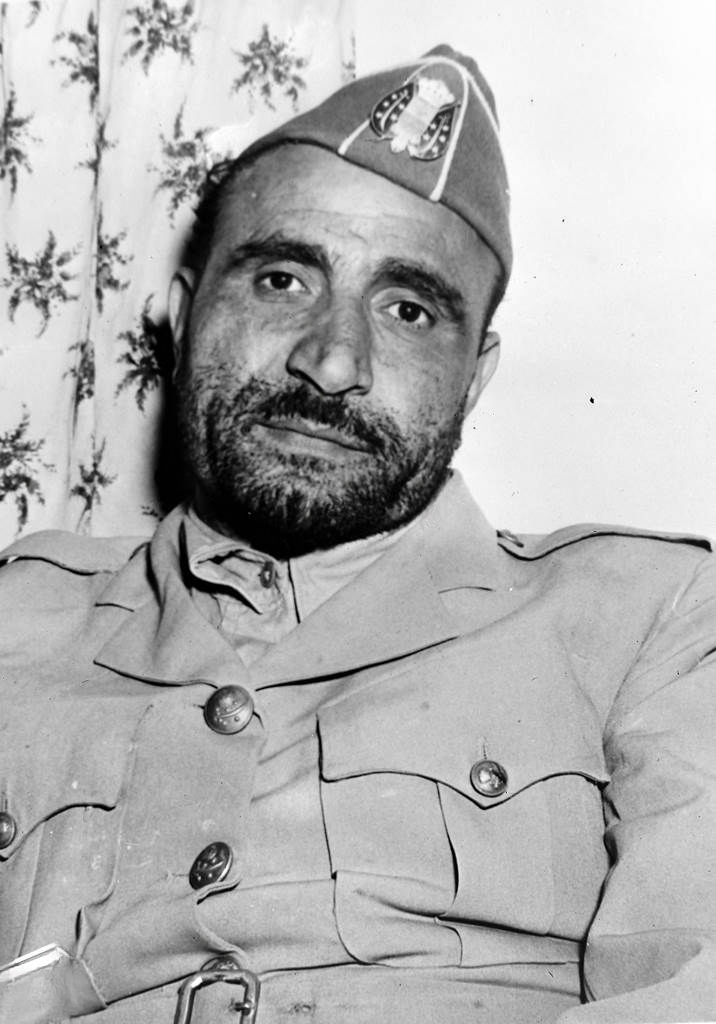|
Alwaziri Coup
The al-Waziri coup ( ), also known as the Yahya clan coup, was a violent dynasty overthrow attempt in the Kingdom of Yemen in 1948, which caused around 5,000 fatalities. During the coup attempt, Imam Yahya Muhammad Hamid ed-Din, the ruler of the kingdom, was assassinated and the rival Sayyid family, the al-Wazirs, seized power for several weeks. Backed by the al-Saud family of Saudi Arabia, the Hamidaddins restored their rule. After the al-Wazirs were deposed, Imam Yahya's monarchy was restored with his son, Ahmad bin Yahya, ascending the throne. Background On 30 October 1918, amidst the dissolution of the Ottoman Empire, Imam Yahya Muhammad Hamid ad-Din of the al-Qasimi dynasty declared northern Yemen an independent state. In 1926, Imam Yahya declared himself king of the Mutawakkilite Kingdom of Yemen, becoming a temporal as well as a (Zaydi) spiritual leader, and won international recognition for the state. In the 1920s, Yahya had expanded Yemeni power to the north into s ... [...More Info...] [...Related Items...] OR: [Wikipedia] [Google] [Baidu] |
Kingdom Of Yemen
The Kingdom of Yemen (), officially the Mutawakkilite Kingdom of Yemen () and also known simply as Yemen or, retrospectively, as North Yemen, was a state that existed between 1918 and 1970 in the northwestern part of the modern country of Yemen. Located in the Middle East, the Kingdom of Yemen had an area of 195,000 km2. The country was bordered by Saudi Arabia to the north, the Aden Protectorate to the south, and the Red Sea to the west. Its capital was Sanaa from 1918 to 1948, then Taiz from 1948 to 1962. Yemen was admitted to the United Nations on 30 September 1947. A republican coup was launched against the government in 1962, leading to the North Yemen Civil War. The royalist government only controlled the northern portions of the country from 1962 to 1970, until a peace deal in 1970 saw it largely dissolved. Three days after the Ottoman Empire's decision to withdraw from Yemen following the 1918 Armistice of Mudros, Imam Yahya, the religious leader of the region, ente ... [...More Info...] [...Related Items...] OR: [Wikipedia] [Google] [Baidu] |
Aden Protectorate
The Aden Protectorate ( ') was a British protectorate in southern Arabia. The protectorate evolved in the hinterland of the port of Aden and in the Hadhramaut after the conquest of Aden by the Bombay Presidency of British India in January 1839, and which continued until the 1960s. In 1940, it was divided for administrative purposes into the Western Protectorate and the Eastern Protectorate. The territory now forms part of the Republic of Yemen. The rulers of the Aden Protectorate, as generally with the other British protectorates and protected states, retained a large degree of autonomy: their flags still flew over their government buildings, government was still performed by them or in their names, and their states maintained a distinct 'international personality' in terms of international law, in contrast to states possessed directly by the British Empire, such as Colony of Aden, where the British monarch was the sovereign. History Informal beginnings What became kno ... [...More Info...] [...Related Items...] OR: [Wikipedia] [Google] [Baidu] |
1948 In Asia
Events January * January 1 ** The General Agreement on Tariffs and Trade (GATT) is inaugurated. ** The current Constitutions of Constitution of Italy, Italy and of Constitution of New Jersey, New Jersey (both later subject to amendment) go into effect. ** The railways of Britain are nationalized, to form British Railways. * January 4 – British rule in Burma, Burma gains its independence from the United Kingdom, becoming an independent republic, named the 'Post-independence Burma (1948–1962), Union of Burma', with Sao Shwe Thaik as its first President and U Nu its first Prime Minister. * January 5 – In the United States: ** Warner Brothers shows the first color newsreel (''Tournament of Roses Parade'' and the ''Rose Bowl Game''). ** The first Kinsey Reports, Kinsey Report, ''Sexual Behavior in the Human Male'', is published. * January 7 – Mantell UFO incident: Kentucky Air National Guard pilot Thomas Mantell crashes while in pursuit of an unidentified fl ... [...More Info...] [...Related Items...] OR: [Wikipedia] [Google] [Baidu] |
Political History Of Yemen
Politics () is the set of activities that are associated with making decisions in groups, or other forms of power relations among individuals, such as the distribution of status or resources. The branch of social science that studies politics and government is referred to as political science. Politics may be used positively in the context of a "political solution" which is compromising and non-violent, or descriptively as "the art or science of government", but the word often also carries a negative connotation.. The concept has been defined in various ways, and different approaches have fundamentally differing views on whether it should be used extensively or in a limited way, empirically or normatively, and on whether conflict or co-operation is more essential to it. A variety of methods are deployed in politics, which include promoting one's own political views among people, negotiation with other political subjects, making laws, and exercising internal and external forc ... [...More Info...] [...Related Items...] OR: [Wikipedia] [Google] [Baidu] |
Rebellions In Yemen
Rebellion is an uprising that resists and is organized against one's government. A rebel is a person who engages in a rebellion. A rebel group is a consciously coordinated group that seeks to gain political control over an entire state or a portion of a state. A rebellion is often caused by political, religious, or social grievances that originate from a perceived inequality or marginalization. ''Rebellion'' comes from Latin ''re'' and ''bellum'', and in Lockian philosophy refers to the responsibility of the people to overthrow unjust government. Classification Uprisings which revolt, resisting and taking direct action against an authority, law or policy, as well as organize, are rebellions. An insurrection is an uprising to change the government. If a government does not recognize rebels as belligerents, then they are insurgents and the revolt is an insurgency. In a larger conflict, the rebels may be recognized as belligerents without their government being recognized ... [...More Info...] [...Related Items...] OR: [Wikipedia] [Google] [Baidu] |
List Of Modern Conflicts In The Middle East
This is a list of modern conflicts ensuing in the geographic and political region known as the Middle East. The "Middle East" is traditionally defined as the Fertile Crescent (Mesopotamia), Levant, and Egypt and neighboring areas of Arabia, Anatolia and Iran. It currently encompasses the area from Egypt, Turkey and Cyprus in the west to Iran and the Persian Gulf in the east, and from Turkey and Iran in the north, to Yemen and Oman in the south. * Conflicts are separate incidents with at least 100 casualties, and are listed by total deaths, including sub-conflicts. * The term "modern" refers to the First World War and later period, in other words, since 1914. List of conflicts Casualties breakdown Unification of Saudi Arabia (combined casualties 7,989–8,989+) : Battle of Riyadh (1902) – 37 killed. : Battle of Dilam (1903) – 410 killed. : First Saudi–Rashidi War (1903–1907) – 2,300+ killed. :Annexation of Al-Hasa and Qatif (1913) – unknown. : Battle of Jarrab (1 ... [...More Info...] [...Related Items...] OR: [Wikipedia] [Google] [Baidu] |
United Arab Republic
The United Arab Republic (UAR; ) was a sovereign state in the Middle East from 1958 to 1971. It was initially a short-lived political union between Republic of Egypt (1953–1958), Egypt (including Occupation of the Gaza Strip by the United Arab Republic, Egyptian-governed Gaza) and Second Syrian Republic, Syria from 1958 until Syria seceded from the union following the 1961 Syrian coup d'état. Egypt continued to be known officially as the United Arab Republic until it was formally dissolved by Anwar Sadat in September 1971. The republic was led by Gamal Abdel Nasser as the President of Egypt, Egyptian president. The UAR was a member of the United Arab States, a loose confederation with the Kingdom of Yemen, Mutawakkilite Kingdom of Yemen, which was dissolved in 1961. It was a brief pan-Arab union. History Origins The United Arab Republic was established on 1 February 1958 as the first step towards a larger Pan-Arabism, pan-Arab state, originally being proposed to Egyptian ... [...More Info...] [...Related Items...] OR: [Wikipedia] [Google] [Baidu] |
Gamal Abdel Nasser
Gamal Abdel Nasser Hussein (15 January 1918 – 28 September 1970) was an Egyptian military officer and revolutionary who served as the second president of Egypt from 1954 until his death in 1970. Nasser led the Egyptian revolution of 1952 and introduced Land reform in Egypt, far-reaching land reforms the following year. Following a 1954 Attempted assassination of Gamal Abdel Nasser, assassination attempt on his life by a Muslim Brotherhood member, he cracked down on the organization, put President Mohamed Naguib under house arrest and assumed executive office. He was 1956 Egyptian referendum, formally elected president in June 1956. Nasser's popularity in Egypt and the Arab world skyrocketed after his Suez Canal Authority, nationalization of the Suez Canal and his political victory in the subsequent Suez Crisis, known in Egypt as the ''Tripartite Aggression''. Calls for Arab Union, pan-Arab unity under his leadership increased, culminating with the formation of the United Ar ... [...More Info...] [...Related Items...] OR: [Wikipedia] [Google] [Baidu] |
Yemen Arab Republic
The Yemen Arab Republic (YAR; ', ), commonly known as North Yemen or Yemen (Sanaʽa), was a country that existed from 1962 until its Yemeni unification, unification with the South Yemen, People's Democratic Republic of Yemen (commonly known as South Yemen) in 1990, in the northwestern part of what is now Yemen.The United States extended diplomatic recognition to the Yemen Arab Republic (North Yemen) on 19 December 1962, ''The Times'', 20 December 1962. Its capital was at Sanaa, Sana'a. It bordered the South Yemen to the southeast, Saudi Arabia to the north and Red Sea to the west, sharing maritime borders with Djibouti and the People's Democratic Republic of Ethiopia. The Yemen Arab Republic was formed in 1962, when a coup in the capital Sanaa, Sana'a saw Nasserism, Nasserist military officers overthrow the Kingdom of Yemen, monarchy and proclaim a republic. The overthrow triggered an North Yemen civil war, 8-year civil war that ended with the defeat of the Monarchism, monarchi ... [...More Info...] [...Related Items...] OR: [Wikipedia] [Google] [Baidu] |
North Yemen Civil War
The North Yemen civil war, also known as the 26 September revolution, was a civil war fought in North Yemen from 1962 to 1970 between partisans of the Kingdom of Yemen, Mutawakkilite Kingdom and supporters of the Yemen Arab Republic. The war began with a ''coup d'état'' carried out in 1962 by revolutionary republicans led by the army under the command of Abdullah al-Sallal, Abdullah as-Sallal. He dethroned the newly crowned Imams of Yemen, King and Imam Muhammad al-Badr and declared Yemen a republic under his presidency. His government abolished slavery in Yemen. The Imam escaped to the Saudi Arabia–Yemen border, Saudi Arabian border where he rallied popular support from northern Zaydism, Zaydi tribes to retake power, and the conflict rapidly escalated to a full-scale civil war. On the royalist side, Jordan, Saudi Arabia, and Israel supplied military aid, and United Kingdom, Britain offered covert support. The republicans were supported by Egypt (then formally known as the ... [...More Info...] [...Related Items...] OR: [Wikipedia] [Google] [Baidu] |
Abdullah Al-Sallal
Abdullah Yahya al-Sallal (; 9 January 1917 – 5 March 1994) was a Yemeni military officer who was the leader of the North Yemeni Revolution of 1962 and served as the first President of the Yemen Arab Republic from 27 September 1962 until his removal on 5 November 1967. It was his government that abolished slavery in Yemen. Early life Al-Sallal was born in the village of Sha'asan, Sanhan district, in Sanaa Governorate. His father died when he was young. Al-Sallal was sent to the only orphanage in Sanaa, known as the Orphan School, which later became famous for raising many of Yemen's greatest patriots and some of the most influential politicians of that era. In the late 1930s, he completed his military education in Baghdad, Iraq. He became a second lieutenant at this time. Though not a member of the social elite in Yemen, Al-Sallal was widely respected by the military community as a competent and brazen officer despite being the son of a butcher, a profession looked down ... [...More Info...] [...Related Items...] OR: [Wikipedia] [Google] [Baidu] |
Coup D'état
A coup d'état (; ; ), or simply a coup , is typically an illegal and overt attempt by a military organization or other government elites to unseat an incumbent leadership. A self-coup is said to take place when a leader, having come to power through legal means, tries to stay in power through illegal means. By one estimate, there were 457 coup attempts from 1950 to 2010, half of which were successful. Most coup attempts occurred in the mid-1960s, but there were also large numbers of coup attempts in the mid-1970s and the early 1990s. Coups occurring in the post-Cold War period have been more likely to result in democratic systems than Cold War coups, though coups still mostly perpetuate authoritarianism. Many factors may lead to the occurrence of a coup, as well as determine the success or failure of a coup. Once a coup is underway, coup success is driven by coup-makers' ability to get others to believe that the coup attempt will be successful. The number of successful cou ... [...More Info...] [...Related Items...] OR: [Wikipedia] [Google] [Baidu] |









